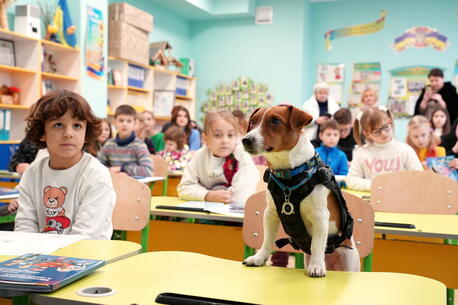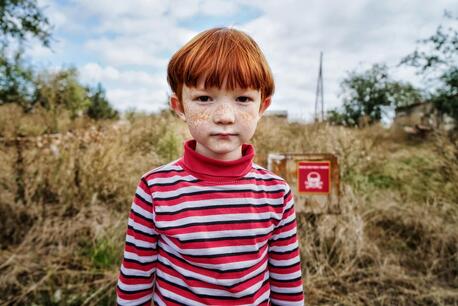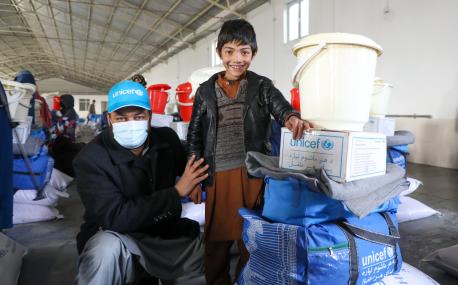
How UNICEF Plans to Help Kids Stay Warm This Winter
In many countries, children are about to experience one of their darkest winters.
Many communities continue to suffer the effects of the COVID-19 pandemic. War and displacement, rising food and fuel prices and climate disasters like the Pakistan floods are increasing hardships for millions of families.
UNICEF is responding by ramping up the distribution of emergency supplies and delivering services that will help families prepare for and withstand the cold weather months ahead.
Just to get one blanket, it means a lot. One jacket in the middle of minus 5, minus 10 degrees, it means a lot. — Kenan Madi, Emergency Manager, UNICEF Ukraine
Here is a closer look at the humanitarian situations for children and families in Afghanistan, Pakistan, Syria and Ukraine, and UNICEF's time-sensitive emergency response plans in each country.
Winter increases risks for already vulnerable children in Afghanistan
Some 70 percent of households in Afghanistan are struggling — and failing — to meet basic needs. With winter fast approaching, amid chronic poverty, drought, disease outbreaks and conflict, the deep and widespread deprivation in the country will only grow more acute. During the winter season in Afghanistan, temperatures can drop well below freezing.
UNICEF plans to reach more than 815,000 people across Afghanistan with humanitarian assistance over the coming months, leaning into the use of humanitarian cash transfers as a way to help families meet their own needs in a dignified way.
UNICEF is also prepositioning medical, nutrition, and water and sanitation supplies in locations that often become inaccessible due to heavy snowfall. Support will continue for health facilities, community-based schools, child care centers and Child-Friendly Spaces as part of UNICEF's winter relief strategy.
UNICEF's winter relief plans for Pakistan focus on areas devastated by flooding
Communities devastated by the recent flooding in Pakistan, particularly in Balochistan, Khyber Pakhtunkhwa and Gilgit Baltistan, are in urgent need of support before winter brings extreme cold and heavy snowfall.
Many families living in flood-damaged homes lack the resources to rebuild; displaced families staying in camps or settlements have little to protect themselves against the elements.
UNICEF and partners have already distributed 15,000 blankets to families in Balochistan and Khyber Paktunkwa. More blankets and other items are on order but additional funding is urgently needed to deliver winter kits containing items such as sweaters and jackets, boots, woolen hats, gloves, scarves and socks to those in need, including 120,000 school-age children.
Warm clothing at the right time can help prevent respiratory illness, asthma, pneumonia and other conditions, especially for babies and newborns.
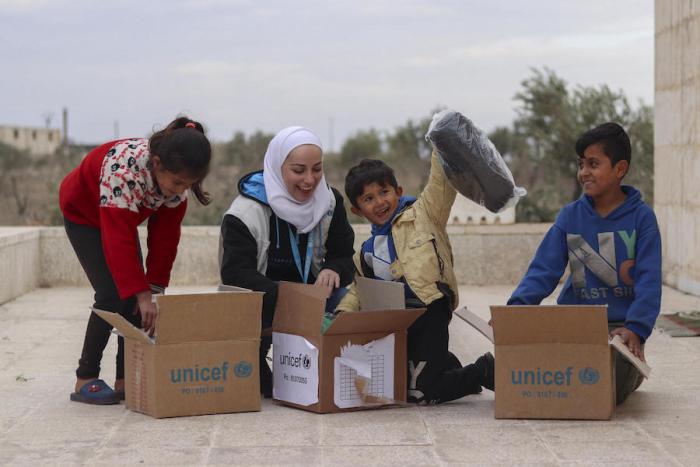
Warm winter clothing provided by UNICEF arrives for displaced children and families in rural Aleppo, Syria, as part of a previous winter relief program. © UNICEF/UNI289835/Al-Issa
How UNICEF aims to help children in Syria and neighboring countries this winter
Winter — with its sub-zero temperatures — is coming to the Middle East, a region suffering from multiple crises. UNICEF is there, as it has been year after year, addressing humanitarian needs of those most at risk. UNICEF's winter appeal for the region this year is for support to help reach 750,000 of the most vulnerable children in Syria and in neighboring refugee host countries, including Iraq, Jordan and Lebanon. The program will focus on the the youngest and the poorest children, and those living in besieged or hard-to-reach areas.
The plan is to provide cash assistance and vouchers to help families cover the basics; to deliver boxes of gear, including warm clothing, boots and other items; to help fuel and heat schools during the winter months so children can keep attending class; and to support water and sanitation services so they can continue operating even in harsh weather.
UNICEF's Ukraine war response expands to include winter relief
Families in Ukraine — many of them displaced by the war and already struggling to meet basic needs — now face the added costs and difficulties of winter.
Temperatures have already dropped below freezing in some parts of the country. With recent attacks targeting the country's energy infrastructure, there are frequent blackouts.
While child protection, education, water and sanitation, health and nutrition programs continue — all components of the humanitarian response to the war — UNICEF is also distributing warm clothing and other winter-related supplies, including fuel and equipment needed to keep the heat on in hospitals, schools and at 'Spilno' social service centers. Cash assistance is also being provided at the local level to help those in need procure their own supplies according to their own specific needs.
Another aspect of UNICEF's winter relief plan in Ukraine is to help make sure children with disabilities — living in residential care homes or with foster families — have enough winter clothing, blankets and heat too.
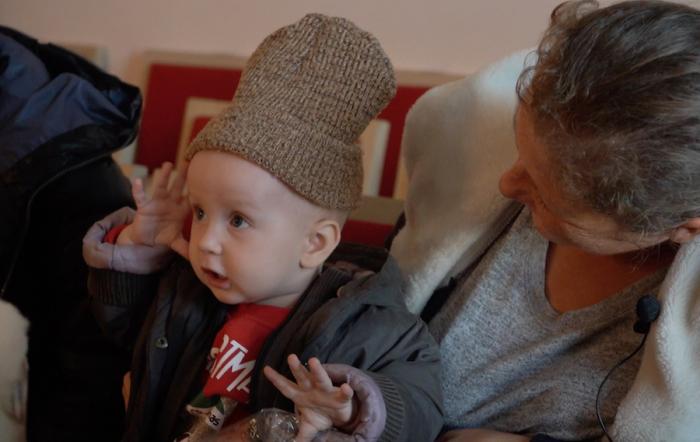
In Khmelnytskyi, western Ukraine, at a support center for families displaced by the war, a 10-month-old infant wears a woolen hat, one of the items included with UNICEF's winter kits containing warm clothing, boots, blankets and toys. "My biggest fear is winter, that I will carry it all on my shoulders and I won't cope with it,” says the child's mother, Kateryna. “My husband always supported me, but now I'm alone and it's really tough." © UNICEF 2022
Help keep vulnerable children warm this winter. Your contribution will help UNICEF reach more children in need. Donate today.
